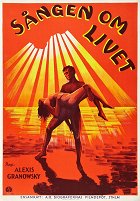
Tartalmak(1)
Erika’s family has fallen on hard times and she has agreed to marry a rich baron. But during the extravagant betrothal celebration, she realises that the class she’s marrying into is morally corrupt and doomed. In despair, she flees to the harbour, intending to kill herself. But the engineer Igor prevents her from jumping into the Elbe river. His belief in life gives Erika new heart; she is soon pregnant with his child. There are complications during the delivery, but thanks to a caesarean, all goes well. (Berlinale)
(több)Recenziók (1)
The heavy-handed methods of avant-garde cinema wedged into a romantic narrative about young love and motherhood sound rather trivial today. The appeal is obvious, the animalism is great, the analogy of young lovers and animal partners is almost brilliant, and yet, unfortunately, it doesn't really work when combined together. The status of a great film and the desire for sensation and a breakthrough in the history of film art are very evident from Song of Life. Nevertheless, it is very important to perceive films like this, whether within a certain stream or just from the position of a period advertisement of the distribution company Merkur-Film, to which Song of Life provided an unusual promotion. When aware of Song of Life, we better understand not only the supposed solitary nature of Machatý's Ecstasy, but also the sub-elements that are mirrored in the later film, especially with the recasting of the male lead with the animalistic Aribert Mog. Now, at last, Machatý's fascination with the ambiguous act of pollinating a flower and other transparent symbols may seem organic in the context of cinematic perception at the time. Even the song of labor has its reflection here, as do some of the hyperboles of the relationship of the main loving couple. Once again, I have no choice but to sigh at the futility of the current so-called knowledge of film, which for so many decades has not been concerned with the contemporary context, but in utter despair prefers to drown film in the bipolarity of the course of the world and study film without film.
()